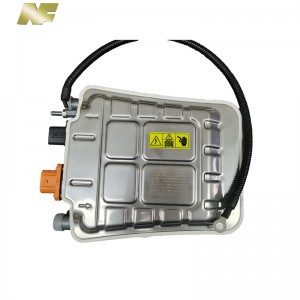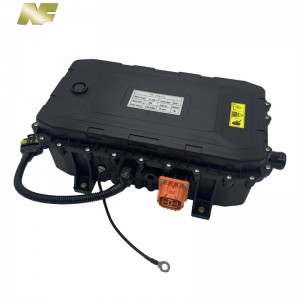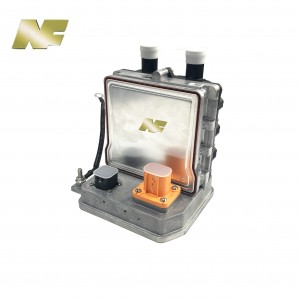As the automotive industry continues to develop, improving vehicle heating systems is becoming increasingly important. With the rise of electric vehicles (EVs) and hybrid vehicles (HVs), manufacturers are exploring new technologies to improve the efficiency and performance of heating systems. One of the innovations is the integration of PTC (Positive Temperature Coefficient) heaters into electric and high-voltage vehicles alongside conventional coolant heaters. This combination of heating technologies is designed to provide optimal comfort and energy efficiency for drivers and passengers in all types of vehicles.
The introduction of PTC heaters in electric and high-voltage vehicles represents a major advance in heating technology. Unlike conventional heaters that rely on a coolant system to generate heat, PTC heaters utilize electrically heated ceramic elements to quickly and efficiently heat the vehicle's interior. The technology is particularly suitable for electric vehicles because it does not rely on the vehicle's internal combustion engine to generate heat, making it a more sustainable and energy-efficient option.
In high-voltage vehicles, the integration of EV PTC heaters complements the existing coolant heating system, providing an additional heat source that can be used independently or in combination with conventional heaters. This dual heating method allows for more precise temperature control and faster heating response, ensuring occupants remain comfortable in different weather conditions.
Furthermore, the combination of PTC heaters with existing coolant heating systems in high-voltage vehicles enables seamless transitions between different heating modes, optimizing energy use and reducing overall fuel consumption. This integration is in line with the industry’s drive to increase sustainability and reduce environmental impact as it uses energy more efficiently.
In addition to the benefits to vehicle occupants, integrating PTC heaters into electric and high-voltage vehicles also helps improve the overall performance of the vehicle. By reducing reliance on internal combustion engine heating, PTC heaters help conserve energy and extend the driving range of electric and hybrid vehicles. This is a key factor in enhancing the appeal of these vehicles to consumers, as it addresses concerns about range anxiety and energy efficiency.
The integration of PTC heaters in electric and high-voltage vehicles is also in line with the wider trends towards electrification and sustainability in the automotive industry. As manufacturers continue to invest in electric and hybrid technologies, the development of advanced heating systems plays a key role in enhancing the overall driving experience and promoting widespread adoption of these vehicles.
Furthermore, the integration of HV coolant heaters into electric and high-voltage vehicles represents an important step forward in the search for more sustainable and environmentally friendly transportation solutions. By reducing reliance on traditional heating methods that contribute to greenhouse gas emissions, PTC heaters contribute to the overall reduction of the automotive industry's environmental footprint.
The combination of PTC heaters with existing coolant heating systems in electric and high-voltage vehicles represents a holistic approach to vehicle heating that meets the need for efficient, sustainable and high-performance heating solutions. As the automotive industry continues to embrace electrification and sustainability, the integration of advanced heating technologies will play a vital role in shaping the future of vehicle design and functionality.
In summary, the integration of PTC heaters into electric and high-voltage vehicles alongside conventional coolant heaters represents a significant advance in vehicle heating technology. This combination of heating technologies offers many benefits, including improved energy efficiency, increased driving range and reduced environmental impact. As the automotive industry continues to evolve, the integration of advanced heating systems will play a vital role in shaping the future of vehicle design and functionality.
Post time: Mar-26-2024







